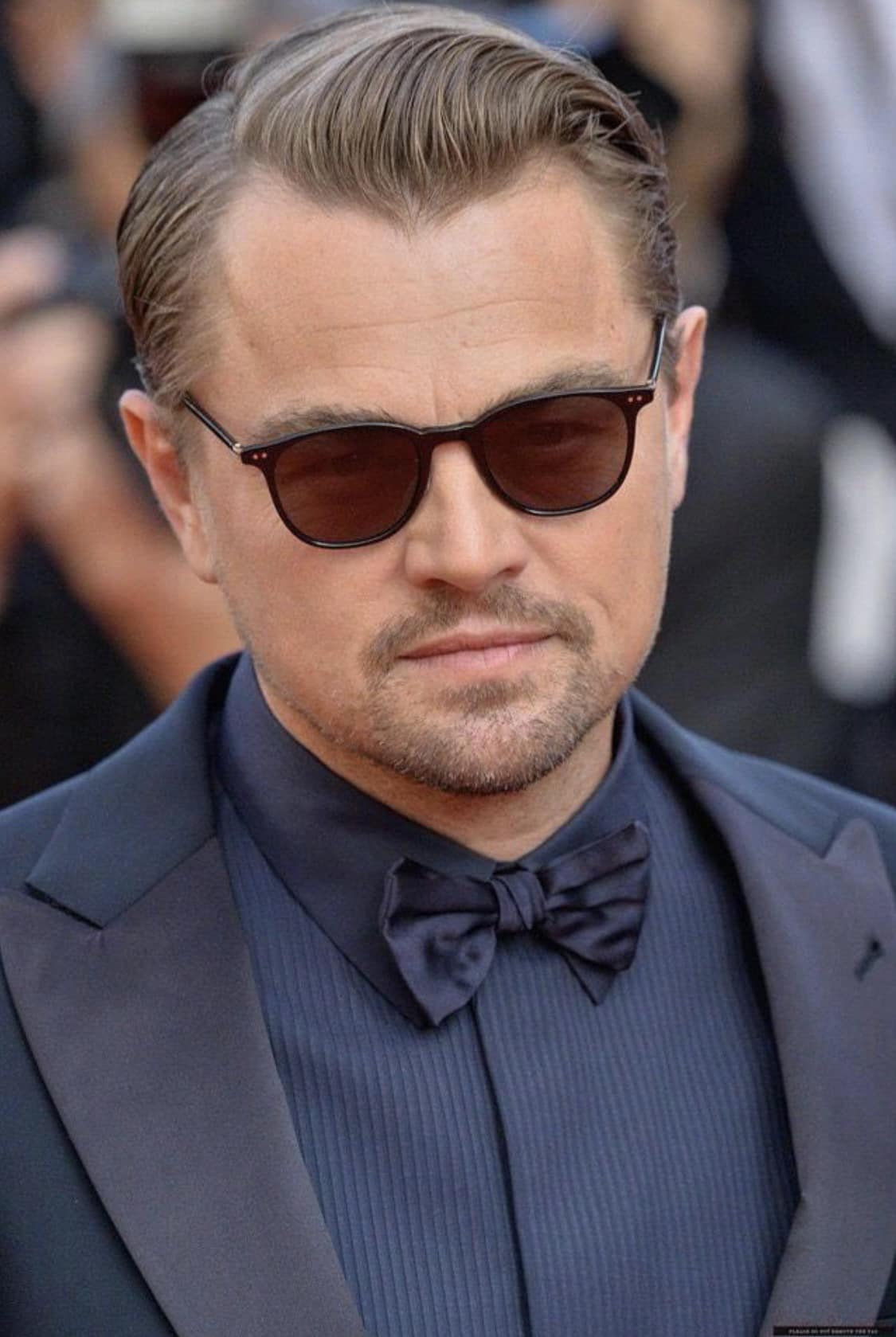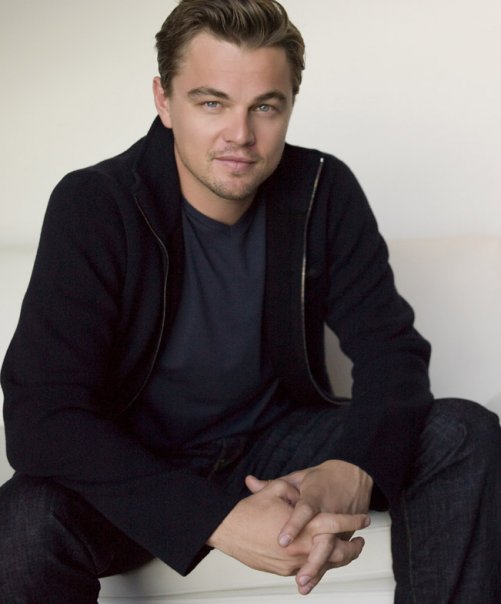Leonardo DiCaprio
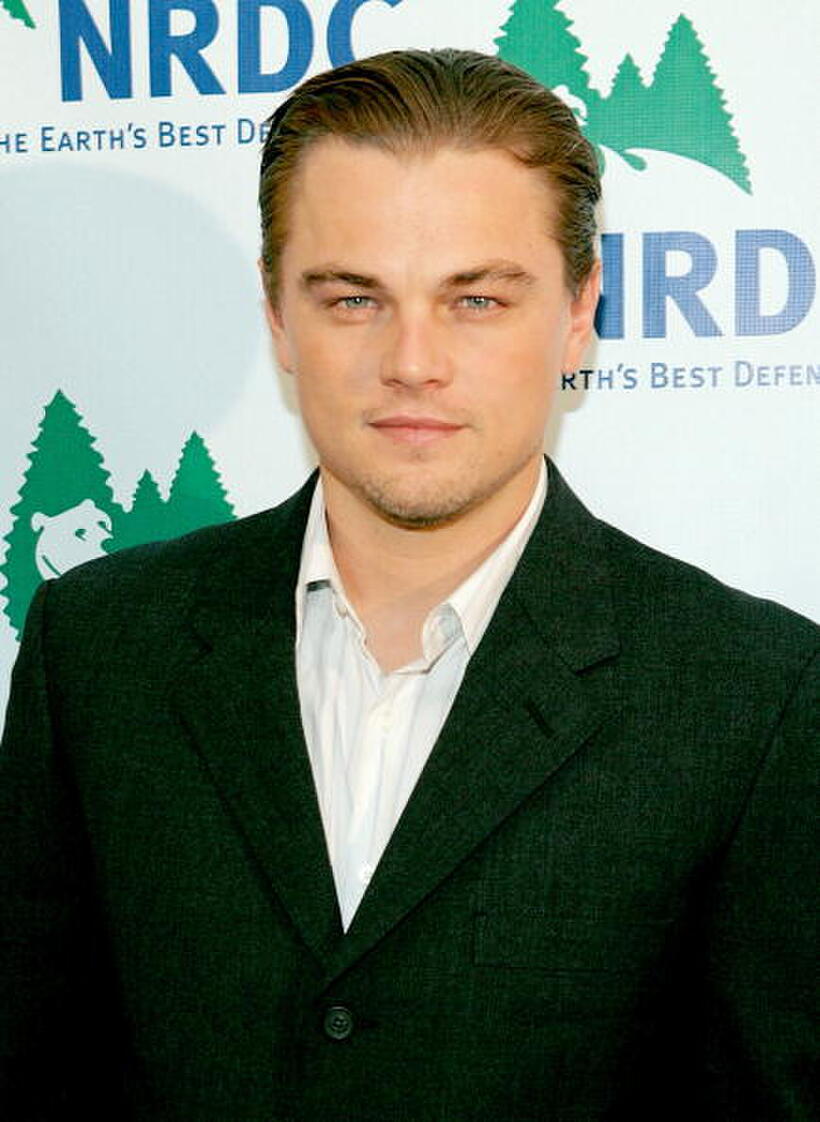
Photo Gallery
Who is Leonardo DiCaprio?
Leonardo Wilhelm DiCaprio (born November 11, 1974) is an acclaimed American actor and film producer, recognized for his performances in biographical and period films. Over his career, he has earned numerous prestigious awards, including an Academy Award, a British Academy Film Award, and three Golden Globe Awards. As of 2019, his films have collectively grossed over $7.2 billion worldwide, and he has frequently ranked among the highest-paid actors.
Born in Los Angeles, DiCaprio began his acting career in the late 1980s with television commercials before landing a recurring role in the sitcom Parenthood (1990–1991). His breakthrough in film came with This Boy’s Life (1993), where he portrayed author Tobias Wolff. He gained widespread recognition and his first Academy Award nomination for his role as a developmentally disabled boy in What’s Eating Gilbert Grape (1993). International fame followed with his performances in Romeo + Juliet (1996) and Titanic (1997), the latter becoming the highest-grossing film of its time. Seeking diverse roles, he transitioned into crime dramas such as Catch Me If You Can (2002) and Gangs of New York (2002), marking the beginning of a long-running collaboration with director Martin Scorsese.
DiCaprio continued to earn critical acclaim for his roles in The Aviator (2004), Blood Diamond (2006), The Departed (2006), and Revolutionary Road (2008). He expanded his filmography with blockbuster hits, starring in Inception (2010), Django Unchained (2012), and The Wolf of Wall Street (2013). His portrayal in The Revenant (2015) won him the Academy Award for Best Actor. He later starred in Once Upon a Time in Hollywood (2019), Don’t Look Up (2021), and Killers of the Flower Moon (2023), solidifying his reputation as one of Hollywood’s most versatile actors.
Beyond acting, DiCaprio is the founder of Appian Way Productions, which has produced several of his films and the documentary series Greensburg (2008–2010). Passionate about environmental activism, he established the Leonardo DiCaprio Foundation to support sustainability efforts. As a United Nations Messenger of Peace, he actively promotes climate change awareness. In recognition of his contributions to cinema, he was named a Commander of the Order of Arts and Letters in 2005. He was also listed among Time magazine’s 100 most influential people in 2016 and was ranked among the 50 greatest actors of all time in a 2022 Empire readers’ poll.
Quick Details
| Full Name | Leonardo Wilhelm DiCaprio |
| Nicknames | Leo; Lenny D |
| Date of Birth | November 11, 1974 |
| Birthplace | Los Angeles, California, U.S. |
| Nationality | American |
| Religion | Catholic |
| Gender | Male |
| Birthday | November 11 |
| Age | 50 |
| Height | 6′ (1.83 m) |
| Weight | 78 kilograms (approx) |
| Zodiac Sign (Horoscope) | Scorpio |
| Hair Color | Disheveled blond |
| Eyes Color | Blue |
| Parents | Irmelin DiCaprio George DiCaprio Peggy Ann Farrar |
| Children | No Children |
| Organizations | Appian Way Productions Leonardo DiCaprio Foundation |
| Title | United Nations Messenger of Peace (designated 2014) |
| Profession | Actor, Film producer |
| Years active | 1989–present |
| Social media links | Facebook, Instagram, X |
Early Life & Education
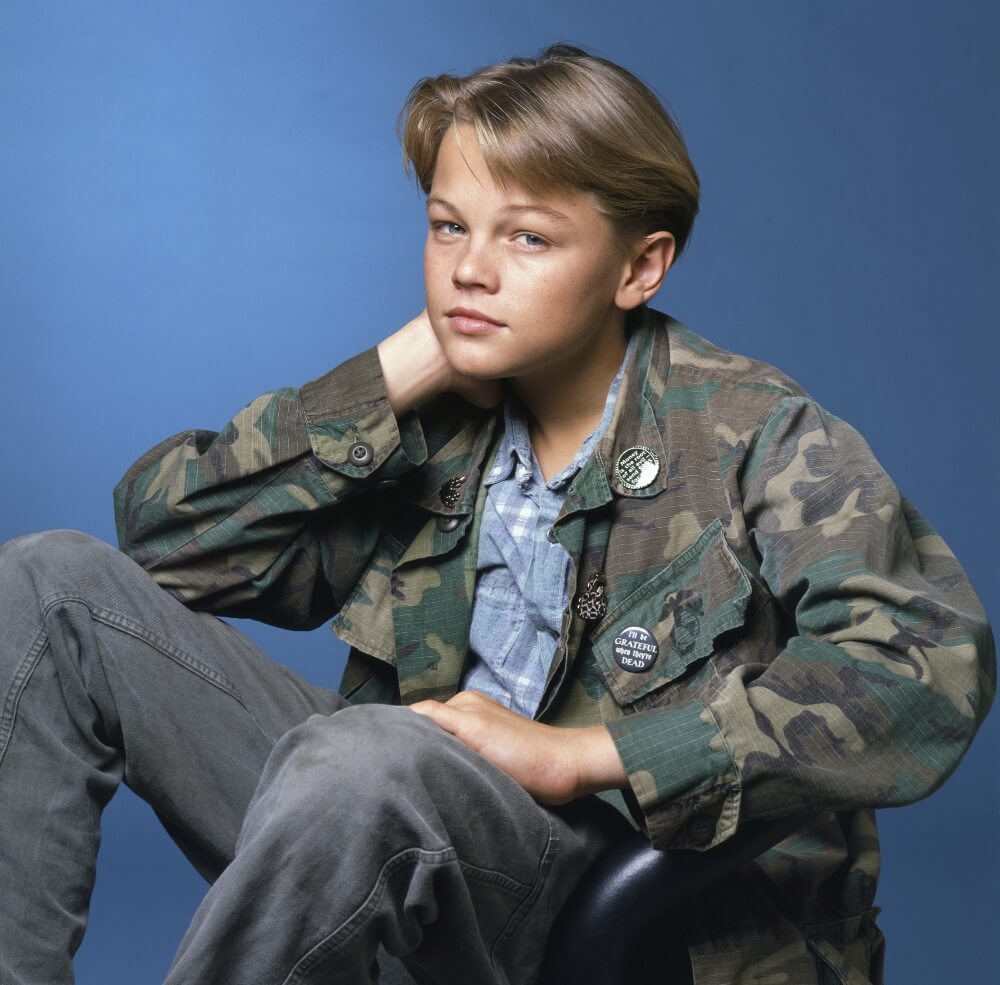
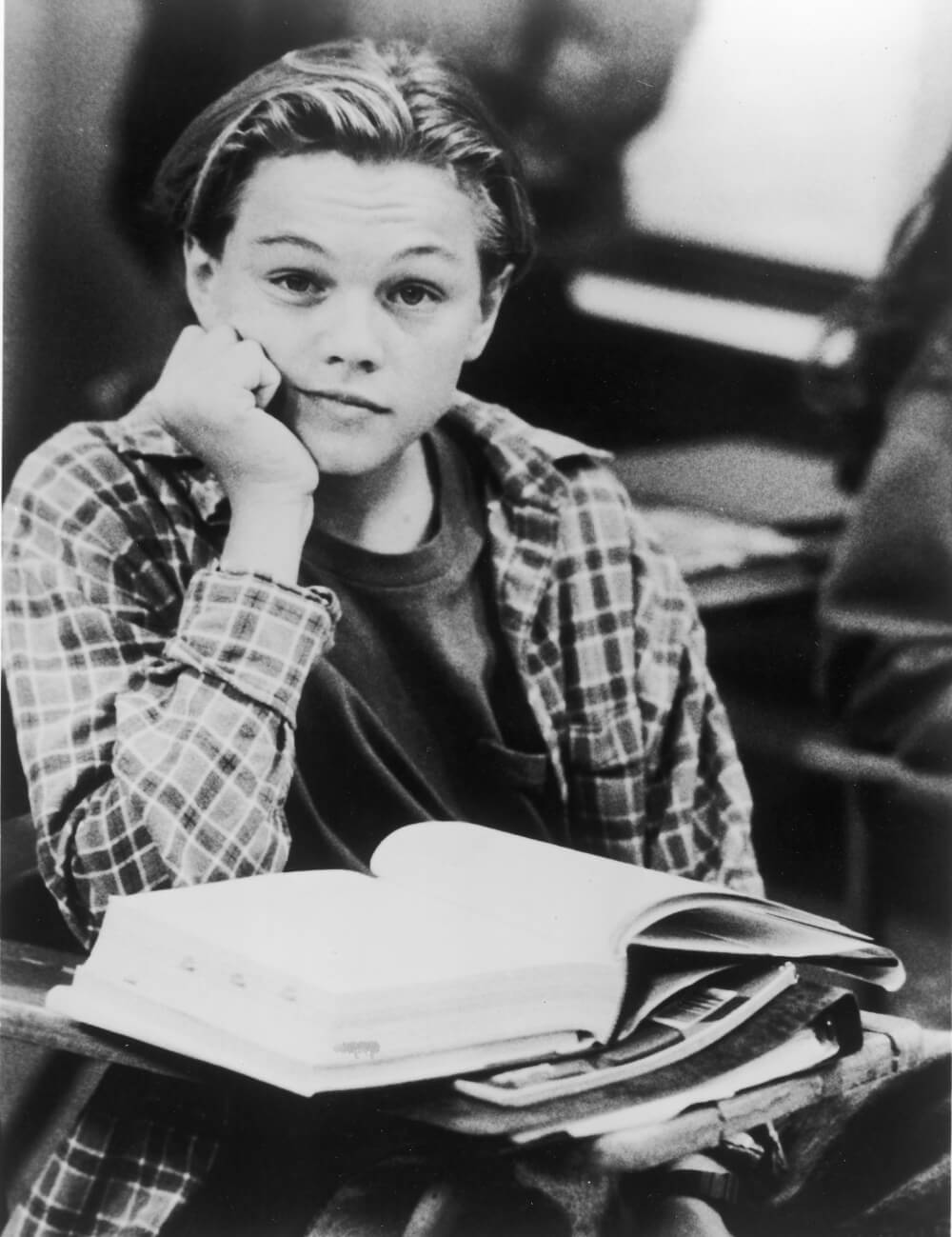
Leonardo Wilhelm DiCaprio was born on November 11, 1974, in Los Angeles, as the only child of Irmelin Indenbirken, a legal secretary, and George DiCaprio, an underground comix artist and distributor. His parents, of German and Italian descent, named him Leonardo after his mother felt his first kick while viewing a Leonardo da Vinci painting in Florence.
When DiCaprio was one, his parents separated, but they co-parented him while living in adjacent homes in Echo Park. Raised by his mother in various Los Angeles neighborhoods, he described his childhood as modest, growing up in an area affected by crime and poverty. Despite this, he credited his parents’ bohemian values for shaping his outlook.
DiCaprio attended several schools, including the Los Angeles Center for Enriched Studies and John Marshall High School, though he disliked public education and dropped out, later earning a GED. Initially torn between becoming a marine biologist or an actor, he chose acting, inspired by his talent for impersonations and the financial potential of the industry. His early television experiences included commercials for Matchbox cars, Kraft Singles, and Apple Jacks.
Struggling initially to find an agent, DiCaprio refused a suggestion to change his name to Lenny Williams for broader appeal. Encouraged by his father, he persisted, eventually securing roles in about 20 commercials and making his television debut in The New Lassie (1989). His breakthrough came with roles in Parenthood (1990) and Santa Barbara (1990), earning him early recognition.
Career
Leonardo DiCaprio made his film debut in 1991 with Critters 3, a low-budget horror sequel, a role he later dismissed as forgettable. That same year, he joined the sitcom Growing Pains as Luke Brower, a homeless boy taken in by the family, but his presence did not boost ratings, and he left before the show ended. He also had a brief uncredited role in Roseanne.
In 1992, DiCaprio landed a minor role in Poison Ivy before Robert De Niro handpicked him from 400 actors to star in This Boy’s Life (1993). His performance as a troubled teen earned him recognition, with critics praising his raw portrayal of growth and resilience. That same year, he played a developmentally disabled boy in What’s Eating Gilbert Grape, a role that required extensive research and improvisation. The film was critically acclaimed, and at 19, DiCaprio earned his first Academy Award nomination for Best Supporting Actor, making him one of the youngest nominees in the category.
In 1995, he starred in The Quick and the Dead, with co-star Sharon Stone personally funding his salary. Though the film underperformed, DiCaprio gained further acclaim with The Basketball Diaries, where he played a high school athlete battling drug addiction. He then took on the role of poet Arthur Rimbaud in Total Eclipse (1995), replacing River Phoenix after his passing. Though the film struggled commercially, critics noted DiCaprio’s growing acting prowess.
His breakthrough came with Romeo + Juliet (1996), a modern adaptation of Shakespeare’s tragedy. Initially hesitant, DiCaprio agreed after an in-depth workshop with director Baz Luhrmann. The film’s success solidified his status as a Hollywood star. That same year, he starred alongside Meryl Streep and Diane Keaton in Marvin’s Room, delivering a compelling performance as a troubled son. Critics hailed his ability to hold his own against seasoned actors, further proving his versatility and rising talent.
DiCaprio turned down Boogie Nights (1997) to star as Jack Dawson in James Cameron’s Titanic, a love story set aboard the doomed RMS Titanic. Initially hesitant, he was convinced by Cameron to take the role. With a record-breaking $200 million budget, the film became the highest-grossing movie at the time, earning over $2.1 billion worldwide. Titanic won 11 Academy Awards, including Best Picture, but DiCaprio’s lack of an Oscar nomination led to fan protests. The film catapulted him to superstardom, sparking “Leo-mania” among young audiences. Despite the massive success, DiCaprio distanced himself from the teen idol image, later reflecting that he had “no connection” with the global phenomenon his face had become.
In 1998, he had a supporting role in Woody Allen’s Celebrity, earning praise as the film’s standout. That same year, he played dual roles as King Louis XIV and his imprisoned twin in The Man in the Iron Mask. Despite mixed reviews, the film grossed $180 million. Critics praised his performance but noted that the material underutilized his talent, and he received a Golden Raspberry Award for Worst Screen Couple for the dual roles.
DiCaprio was initially cast in American Psycho (2000) for a record $20 million but left over creative differences, opting instead for The Beach (2000), where he played a backpacker lured into a secret island commune. The film was a commercial success but faced negative reviews, earning him another Golden Raspberry nomination. Environmental damage caused during filming led DiCaprio to participate in restoration efforts.
In the mid-1990s, DiCaprio appeared in the improvised indie film Don’s Plum as a favor to a friend. When the project expanded into a feature, he and Tobey Maguire blocked its release in the U.S. and Canada, arguing it was never meant for wide distribution. The film remains obscure, only premiering at the 2001 Berlin International Film Festival.
DiCaprio rejected the role of Anakin Skywalker in Star Wars: Episode II – Attack of the Clones (2002), feeling unready for the role. Instead, he starred in Catch Me If You Can, a biopic about Frank Abagnale Jr., a notorious con artist. Directed by Steven Spielberg, the film was shot across 147 locations in 52 days, earning critical acclaim and grossing $355 million. DiCaprio’s performance was praised, with some critics calling it his best role. He earned his third Golden Globe nomination for the film.
In 2002, DiCaprio also starred in Gangs of New York, directed by Martin Scorsese. The film was plagued by production issues but earned $193 million globally. DiCaprio’s performance as Amsterdam Vallon was praised, though co-star Daniel Day-Lewis overshadowed him. DiCaprio’s shift from “boyish” roles to a more mature leading man was noted.
In 2004, DiCaprio founded Appian Way Productions, which allowed him to focus on unique projects. He produced The Assassination of Richard Nixon and co-produced The Aviator, a biographical film about Howard Hughes directed by Scorsese. The Aviator was a financial and critical success, earning $213 million and winning DiCaprio his first Golden Globe Award for Best Actor. He also received Academy Award, BAFTA, and SAG Award nominations.
In 2006, DiCaprio starred in two significant films: The Departed and Blood Diamond. The Departed was a major hit, grossing $291 million, and DiCaprio earned critical acclaim for his role as an undercover cop. Although he was nominated for a Golden Globe and BAFTA, his performance was submitted for Best Supporting Actor to avoid internal conflicts with his lead role in Blood Diamond. In Blood Diamond, DiCaprio played a smuggler during the Sierra Leone Civil War, receiving praise for his South African accent and nomination for both an Academy Award and a Golden Globe.
DiCaprio also produced The Gardener of Eden (2007), which failed to connect with audiences, and co-wrote and narrated the environmental documentary The 11th Hour (2007), which won the Earthwatch Environmental Film Award. His Appian Way production company was also behind Greensburg (2008–2010), a documentary about rebuilding the town of Greensburg after a tornado.
In 2008, DiCaprio starred in Body of Lies, a spy thriller that received mixed reviews but grossed $118 million. Later that year, he reunited with Titanic co-star Kate Winslet for Revolutionary Road, a film about a couple in a failing marriage. DiCaprio’s performance was widely praised, earning him his seventh Golden Globe nomination. The film grossed $75.9 million. He rounded out the decade by producing the psychological thriller Orphan (2009), which was commercially successful despite mixed reviews.
DiCaprio continued his successful partnership with Martin Scorsese in the 2010 psychological thriller Shutter Island, where he played U.S. Marshal Teddy Daniels, who investigates a psychiatric facility and questions his own sanity. Despite mixed reviews, DiCaprio’s performance was praised, and the film grossed $294 million worldwide against a $80 million budget.
In 2010, DiCaprio also starred in Christopher Nolan’s Inception, a sci-fi thriller about dream heists. DiCaprio played Dom Cobb, a skilled extractor tasked with planting an idea in a target’s mind. The film grossed $836 million worldwide, becoming his second highest-grossing film. DiCaprio earned $50 million from the project, his highest payday to date.
In 2011, DiCaprio starred as J. Edgar Hoover in J. Edgar, a biopic about the FBI director. Critics had mixed feelings about the film, but DiCaprio’s performance was praised for its depth. That year, he also produced Red Riding Hood, which had moderate box-office returns, and The Ides of March, a political drama.
In 2012, DiCaprio portrayed Calvin Candie in Quentin Tarantino’s Django Unchained. His portrayal of a villain earned critical acclaim and a Golden Globe nomination for Best Supporting Actor. The film grossed $425 million worldwide on a $100 million budget.
In 2013, DiCaprio took a break from acting but starred in The Great Gatsby, portraying the enigmatic millionaire Jay Gatsby. Despite mixed reviews for the film, DiCaprio’s performance was lauded, earning him the AACTA Award for Best Actor. The film grossed $353 million globally, more than three times its budget.
That year, DiCaprio also produced three films under Appian Way: Runner Runner, which was criticized as a lazy film; Out of the Furnace, which failed commercially; and The Wolf of Wall Street. In The Wolf of Wall Street, DiCaprio portrayed stockbroker Jordan Belfort, whose life story was adapted from the memoir of the same name. The film received positive reviews, with DiCaprio’s performance earning a Golden Globe Award for Best Actor in a Motion Picture Musical or Comedy and nominations for an Academy Award and BAFTA Award for Best Actor.
In 2014, DiCaprio was an executive producer for Virunga, a documentary about the fight to protect the world’s last mountain gorillas. The film premiered at the Tribeca Film Festival and earned him a Primetime Emmy nomination. He also executive produced Cowspiracy: The Sustainability Secret, a documentary on the environmental impact of animal agriculture, which was released on Netflix.
DiCaprio’s next major role was in Alejandro González Iñárritu’s The Revenant (2015), where he portrayed fur trapper Hugh Glass in a physically demanding role. The film grossed $533 million worldwide, and DiCaprio won numerous awards for his performance, including the Academy Award for Best Actor. He also narrated several documentaries in the following years, such as Before the Flood (2016), addressing climate change, and The Ivory Game (2016).
In 2016, DiCaprio produced Live by Night, a film that received lukewarm reviews and failed at the box office. He also produced Delirium and Robin Hood, both of which underperformed commercially. In 2019, he returned to acting in Quentin Tarantino’s Once Upon a Time in Hollywood, where he portrayed aging actor Rick Dalton. The film was a commercial success, grossing $374 million, and earned DiCaprio multiple award nominations for his performance.
DiCaprio continued his work as an executive producer in 2020, helping produce the TV series The Right Stuff on Disney+. In 2021, he starred in Adam McKay’s satirical film Don’t Look Up, playing an astronomer trying to warn the world about an impending comet. Despite mixed reviews, DiCaprio and co-star Jennifer Lawrence’s performances were praised, and the film became Netflix’s most-viewed film in a single week.
In 2023, DiCaprio starred in Martin Scorsese’s Killers of the Flower Moon, portraying the morally complex Ernest Burkhart. His performance received critical acclaim, earning him a Golden Globe nomination. His upcoming project is One Battle After Another, directed by Paul Thomas Anderson.
Philanthropy
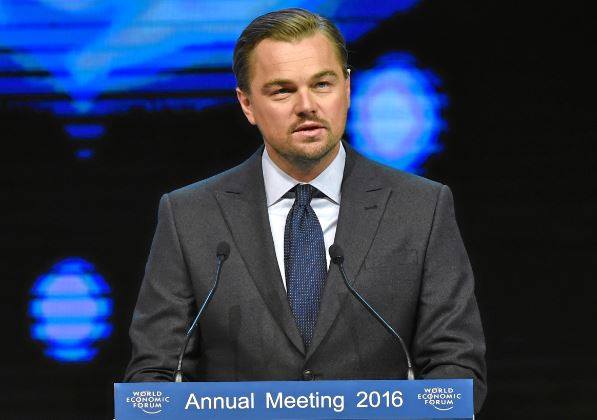
DiCaprio has been actively involved in philanthropy throughout his career. In 1998, he and his mother donated $35,000 to establish the “Leonardo DiCaprio Computer Center” at a library in Los Feliz. In 2009, he joined a campaign with Kate Winslet, James Cameron, and Celine Dion to raise money for the nursing home fees of Millvina Dean, a Titanic survivor, and donated $20,000. He also contributed $1 million to Haiti’s relief efforts after the 2010 earthquake and supported animal rights causes, including donating to the Animal Legal Defense Fund to release a tiger named Tony in 2011.
DiCaprio continued his philanthropic efforts in the following years, donating $61,000 to GLAAD in 2013 and $65,000 in 2016 to the Children of Armenia Fund. He also provided $1 million to Hurricane Harvey relief in 2017 and $3 million to aid Australia during the 2020 bushfires. In 2022, amidst the Russian invasion of Ukraine, DiCaprio reportedly donated $10 million, though there were questions about the accuracy of this amount.
Personal Life
Leonardo DiCaprio is agnostic but does not identify as an atheist. He is known for being private and rarely grants interviews, often avoiding discussions about his personal life. Despite this, his relationships, particularly with women aged 25 or younger, have been widely covered by the media, which has led to criticism.
DiCaprio has had several high-profile relationships. He dated Brazilian model Gisele Bündchen from 1999 to 2005 and was involved with Israeli model Bar Refaeli from 2005 to 2011. He later dated German model Toni Garrn from 2013 to 2014 and again in 2017, and had a relationship with model and actress Camila Morrone from 2017 until 2022. As of August 2023, he has been dating Italian model Vittoria Ceretti.
He owns properties in Los Angeles and New York City and purchased Blackadore Caye, an island off Belize, in 2009 with plans to develop an eco-friendly resort. In 2014, he also acquired the Dinah Shore residence in Palm Springs, California.
In 2005, DiCaprio was attacked by model Aretha Wilson at a Hollywood party, requiring seventeen stitches to his face and neck after she hit him with a broken bottle. Wilson pleaded guilty to the assault and was sentenced to two years in prison.
DiCaprio was also involved in a legal matter in 2017 when Red Granite Pictures, a production company tied to The Wolf of Wall Street, was linked to the 1Malaysia Development Berhad scandal. DiCaprio returned gifts he had received from the company, including a $3.2 million Picasso painting and a $9 million Basquiat collage, to the U.S. government.
Salaries
| Movie | Salary |
|---|---|
| Killers of the Flower Moon (2023) | $30,000,000 |
| Don’t Look Up (2021) | $30,000,000 (includes back-end) |
| Once Upon a Time… in Hollywood (2019) | $10,000,000 |
| The Audition (2015) | $13,000,000 |
| The Wolf of Wall Street (2013) | $25,000,000 (including bonuses) |
| The Great Gatsby (2013) | $20,000,000 |
| Django Unchained (2012) | $1,000,000 |
| J. Edgar (2011) | $2,000,000 |
| Inception (2010) | $59,000,000 (salary + back-end + share of DVD/pay-TV) |
| Blood Diamond (2006) | $20,000,000 |
| The Departed (2006) | $20,000,000 |
| The Aviator (2004) | $20,000,000 |
| Catch Me If You Can (2002) | $20,000,000 |
| Gangs of New York (2002) | $10,000,000 + Gross Points |
| The Beach (2000) | $20,000,000 |
| Titanic (1997) | $2,500,000 + 1.8% of backend profits |
| The Quick and the Dead (1995) | $150,000 |
| The Basketball Diaries (1995) | $1,000,000 |
| What’s Eating Gilbert Grape (1993) | $75,000 |

